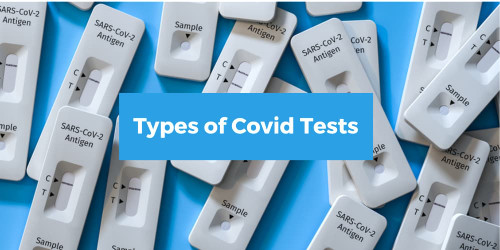Nowadays, people are getting more conscious about health and fitness. Most are turning into measuring their calorie intake, glucose intake, and even blood and ketone levels monitoring. In this blog, we will explore more about Ketones and the importance of monitoring your Ketone levels.
What are Ketones?
Ketones are waste products which develop when the body breaks down fat as an energy source. This is because glucose is unable to enter the cells. Ketones can occur when there is not enough insulin given to circulate around the blood or when not enough food (carbohydrates) has been eaten. Ketones are acidic and are dangerous to the body if they are allowed to build up over a long period of time.
Or as simplified by Diabete UK's guide to Diabetes, Ketones are a type of chemical that your liver produces when it breaks down fats. Your body uses ketones for energy typically during fasting, long periods of exercise, or when you don’t have as many carbohydrates. You can have low levels of ketones in your blood without it being a problem.
A normal ketone level is below 1.0mmol/L. If your ketone level is below < 1.0mmol/L this is considered within range and does not require immediate attention. More info below.
Source Article: Monash Children Hospital
Ketones Symptomps
As stated by Diabete UK's guide to Diabetes, you should do what you can to stop ketones from building up in the body. Noticing when your body is starting to produce ketones is an important step. You should check for ketones in your blood or urine if you notice the following:
- breath that smells fruity (this is the ketones on your breath)
- high blood sugar levels (this is called a hyper)
- going to the toilet a lot
- being really thirsty
- feeling more tired than usual
- stomach pain
- changes to your breathing (usually deeper)
- confusion
- fainting
- feeling or being sick.
You might notice these symptoms over 24 hours, but they can come on faster than that. If you do notice symptoms of high ketones or if you’re a parent and you see the signs in your child, you need to act quickly.
Ketone levels rising are a sign of things happening in the body that can be made better. Noticing the symptoms is the first step to doing that. Next you need to check for ketones, and seek medical help if this is high.
What are the normal ranges for ketone levels?
If you use a meter to test for ketones in your blood:
- under 0.6mmol/L is normal
Source Article: Diabetic ketoacidosis
What ketone levels are considered higher than normal?
- 0.6 to 1.5mmol/L is slightly high – test again in 2 hours
- 1.6 to 3mmol/L means you're at risk of DKA and should speak to your diabetes care team for advice
- over 3mmol/L is high and means you may have DKA and should call 999 or go to A&E
If you use strips to test for ketones in your pee, over 2+ is high. This means you may have DKA and should call 999 or go to A&E.
Important: These ketone levels are a guide. Normal blood ketone levels can be different for different people. Your diabetes care team will advise you on what levels to look for.
Source Article: Diabetic ketoacidosis
Importance of Monitoring Your Ketone levels
In small amounts, ketones are not harmful. However, if ketone levels build up, they can become toxic and very dangerous for people with type 1 diabetes. High levels can lead to a potentially life-threatening condition called diabetic ketoacidosis, often referred to as DKA. The ketones make the blood too acidic, which leads to a loss of body salts and fluids. Being able to measure ketone levels is very important for people who have type 1 diabetes. When you become unwell, or blood glucose levels are over 15mmol/L for a period of time (usually a couple of consecutive readings over 15) it is important to check your ketone level. Your ketone level helps to determine what type of action you need to take to help reduce them.
Two Ways to Measure Your Ketone Levels
1. Using a Blood Ketone Strip - B-Ketone test strips are available for the self-testing of blood ketones. You can perform the test just like using a normal glucose strip. The reading will alert you to the level of ketones in your blood. We recommend that you keep some of these strips in your first aid box for use if you become sick.
The test strips can be purchased at a pharmacy or online and usually do not require a prescription.
Our Top Picks:
 |
 |
|
2. Using a Urinary Ketone Stick – You dip the test strip into fresh urine collected in a small container. Remove the strip from the urine and wait 15 seconds. The stick then changes colour. Compare the colour on the strip with the colour chart on your bottle. You can use the Keto-Diastix Reagent Strips. Always read the instructions before doing the test for an accurate result. The urine ketone test will tell you whether you have no ketones present or if you have trace, small, moderate, or large ketones present. If your urine has moderate or large ketones present, call your doctor or nurse right away.
Ketone ranges and what those may mean for you
The table below shows ketone ranges and what those ranges may mean for you. Your individualised sick day plan will specify what action to take when your ketones reach certain levels. If you do not have a sick day plan, it is recommended that you discuss this with your diabetes health care provider.
| Blood Ketone Level | Urine Ketone Level | What does it mean? |
| Less than 0.6mmol/L | Negative | Normal |
| 0.6 to 1.5mmol/L | Trace or small | Ketones are building up. Action is needed to reduce them. Follow sick day plan and contact your health professional urgently if your ketones do not reduce by following the plan or you do not have a sick day plan. |
| 1.5 to 3.0mmol/L | Moderate/large | Ketones are high, increasing risk of DKA developing. Follow sick day plan and contact your health professional urgently if your ketones do not reduce by following the plan or you do not have a sick day plan. |
| Over 3.0mmol/L | Large | DKA likely – Urgent medical attention required. |
If you would like more general information, please call the NDSS helpline on 1800 637 700.
Sources:
-
Diabetes Australia, What are ketones and why it’s important to monitor them.
-
Health Direct, DKA
-
University of Iowa Hospital Clinics, Urine Ketone Testing.















